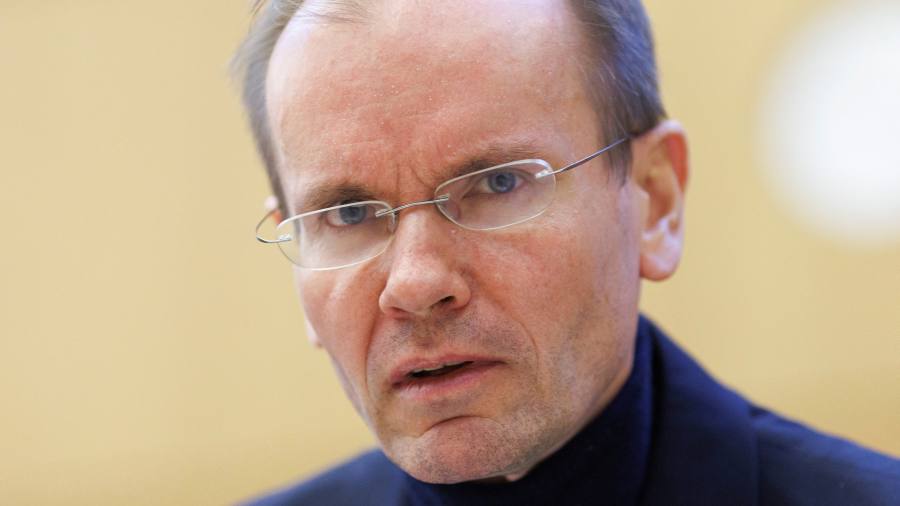
Markus Braun’s lawyer has filed a motion to suspend the criminal trial of the former chief executive of disgraced German payments group Wirecard just days after the case began.
Alfred Dierlamm on Monday morning told a Munich court that prosecutors had failed to properly investigate the case, ignored key evidence and relied on flawed testimony of an unreliable witness who was telling a “pack of lies”.
The court will hear opening statements from the lawyers of the two other defendants on Monday afternoon and will decide on the motion in the next weeks. If it is successful, Braun might be released from police custody.
In June 2020, Wirecard collapsed into insolvency after disclosing that €1.9bn in corporate cash purportedly held in escrow accounts in Asia did not exist.
A subsequent internal probe by Wirecard’s compliance team on behalf of the administrator and a two-year investigation by criminal prosecutors concluded that the outsourced operations in Asia were fake.
In a two-hour statement on the second day of the trial of Braun and two other former Wirecard managers at a Munich court, Dierlamm argued that the company’s outsourced operations in Asia did exist but that its proceeds were siphoned off without Braun’s knowledge.
He accused prosecutors of ignoring evidence supporting that view, adding that law enforcement authorities “decided to artificially and against the facts stick to the old narrative”.
Dierlamm also accused prosecutors of sharing reams of additional data with the defence only shortly before the trial, making it impossible to take the additional information into account.
“The whole criminal investigation has been suffering from serious shortcomings,” said Dierlamm, adding that “the current trial is doomed to fail”.
Prosecutors last week charged Braun, Wirecard’s former head of accounting Stephan von Erffa and former senior Dubai-based manager Oliver Bellenhaus with fraud, embezzlement, accounting manipulation and market manipulation. Braun and Bellenhaus have been in police custody for two-and-a-half years.
Bellenhaus, who was in charge of large parts of the outsourced operations and has turned chief witness after reporting himself to police in 2020, also told prosecutors that the business did not exist.
Dierlamm accused prosecutors of having ignored more than €1bn in money transfers from Wirecard business partners to the German company, which in his view were at odds with Bellenhaus’s testimony and showed that the outsourced operations were real.
Dierlamm accused Bellenhaus and Wirecard’s fugitive former second-in-command Jan Marsalek of having channelled at least €750mn of those funds to shell companies.
“Braun was not informed about this,” he said. “Oliver Bellenhaus was in control of those payment flows.”
Dierlamm attacked the credibility of Bellenhaus, whose testimony is key for the 89 pages of charges against Braun, pointing out that Bellenhaus did not immediately disclose that he owned a private foundation in Liechtenstein where he had stashed €6.1mn of Wirecard funds. “Bellenhaus is not a chief witness but one of the main culprits,” the lawyer said.
He also seized on alleged contradictions between Bellenhaus’s initial testimony to prosecutors in the summer of 2020, where he did not implicate Braun and argued that the outsourced operations were real, and subsequent testimony that Dierlamm said was “a pack of lies”.
Dierlamm argued that Braun believed Wirecard was viable until the end, pointing to the fact that in May 2020, the chief executive bought additional Wirecard shares for €2.5mn and did not sell a single share in the group.
“As the single largest shareholder, he could not have any interest in channelling money out of Wirecard,” Dierlamm said, calling the allegations against his client “absurd” and “implausible”.